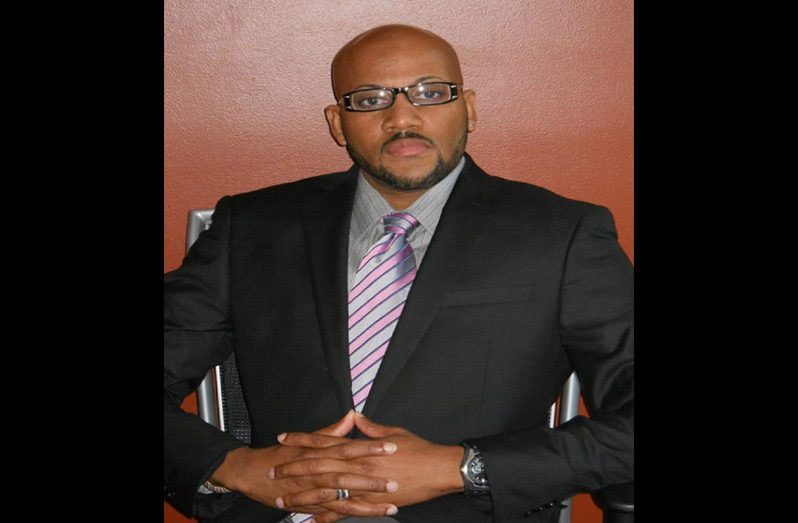EVER since the start of the novel Coronavirus pandemic, reports have shown that people around the world have been faced with mental health challenges.
Coping with those challenges is definitely not the easiest of things.
Clinical Psychotherapist Shane Tull recently wrote a book addressing the very pertinent issue and sat down with the Pepperpot Magazine to share some of the concerns.
In his book, titled: “Mental Health in a Pandemic,” Tull concluded that mental health challenges have become a “pandemic within the pandemic.”
According to Tull, his aim is to ensure that one leaves with a sense of empowerment and clarity of the importance of good mental health.
He drew the conclusion that his publication is a book of the moment, filled with warmth, hope, and a collective sense of healing.
Additionally, Tull, drawing from his experience of 25 years, noted that this book aims to explore the meaning of mental health in our community, thus giving voice to our experiences as we navigate the mental health space.
“For us to see mental health not as an abstract concept, rather as a collective process of healing…… ‘mental health is health.’ COVID-19 has demanded renewed attention to the issue of mental health as it relates to capacity building and the delivery of culture competencies services as it relates to marginalised communities,” Tull told the Pepperpot Magazine.
During an interview, Tull contended that mental health challenges are continuing to rage rampantly and how we as a people are responding.
“We are still seeing an escalation in suicides, depression, drug abuse and all the things we saw at the beginning of the pandemic, so I thought with coming up with just doing a book, more like a guide for a normal person to help yourself, what is mental health, and the things you can recognise in other people,” Tull was quoted as saying.
Tull further explained that the destigmatisation of mental health challenges is a big thing and knowing that getting help is okay.
He further contended that suffering in silence is not strength, but asking for help is a form of strength when going through mental health issues.
“Research has shown that if you are [at] the beginning of a mental health crisis and you get all the right support, you get through that crisis much faster, especially if it is family and people in your community. Therefore, mental health is a community and event because it takes everyone to be involved, especially in Guyana. The good part is, it is not a partisan issue but a national issue,” Tull told the Pepperpot Magazine.
He underscored the point that mental health is everybody’s business, so we must invest in things that will ensure that we do everything in our power to alleviate the pain and the ill effects of poor mental health, so that we can help ourselves and others.
Tull shared the exciting news that men are now coming forward to address their concerns with mental health challenges that they face from time to time, and particularly during the pandemic.
“I believe that if you create safe space for men, thus making them feel that they aren’t going to be judged, but rather they are going to be supported, and they can lend their support to others, they will respond because we all need community to support each other, in retrospect bringing clarity to mental health,” Tull noted.
According to the World Health Organisation (WHO), pandemic fatigue is a natural and expected reaction to sustained and unresolved adversity in people’s lives. The WHO notes that an example is a demotivation to engage in protection behaviours and seek COVID-19-related information.
Tull is a Guyanese and has worked with the Centers for Disease Control (CDC) and United States Agency for International Development (USAID), as well as special programmes at the Davis Memorial and Mercy Hospitals.
The relationship between physical and mental health is multifaceted. Mental disorders increase the risk of communicable and non-communicable diseases and contribute to unintentional and intentional injuries. Like other aspects of health, mental health can be affected by a range of socio-economic and psychological factors that need to be addressed through comprehensive strategies for promotion, prevention, treatment, and recovery.
In May 2012, the 65th World Health Assembly adopted resolution WHA65.4 on the global burden of mental disorders and the need for a comprehensive, coordinated response from health and social sectors at the country level.
In the light of this call to action, mental health was given prominence in the service priorities of the National Health Sector Strategy 2013-2020, which has as its vision “that the people of Guyana are among the healthiest in the Caribbean and the Americas.”
COVID-19, he said, has placed mental health issues at the forefront, not just in Guyana, but throughout the world.



.jpg)








